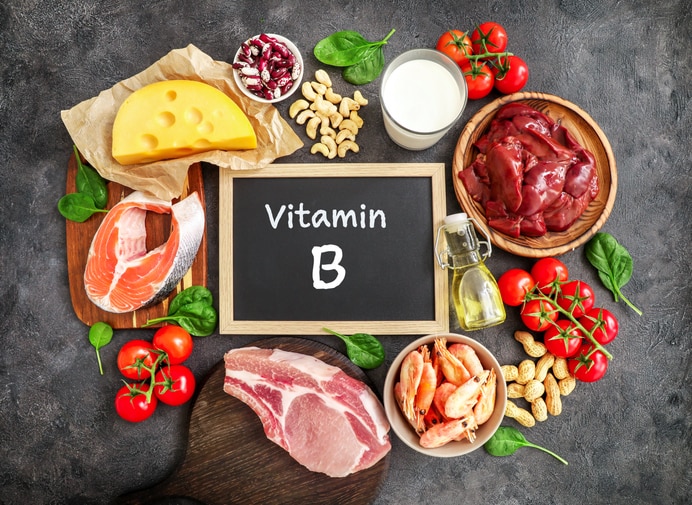Curious about the vital role vitamins play in maintaining your health? Look no further! In this article, we’ll dive into the fascinating world of vitamins, offering you essential insights. From understanding what vitamins are to exploring their benefits, sources, potential deficiencies, risks, and uses, we’ve got you covered.
Understanding Vitamins

Vitamins are essential nutrients that our bodies need to function properly. These organic compounds are required in insignificant amounts to support various physiological processes, playing a crucial role in maintaining overall health and well-being. There are 13 essential vitamins, each with its unique function. These vitamins can be classified into two categories: fat-soluble and water-soluble.
Fat-soluble vitamins, including vitamins A, D, E, and K, are stored in the body’s fat tissues and liver. They are absorbed along with dietary fats and can be stored for longer periods. These vitamins are important for maintaining healthy vision, bone health, immune function, and blood clotting.
Water-soluble vitamins, such as vitamin C and the B vitamins are not stored in the body and need to be replenished regularly through diet. They play a vital role in energy metabolism, cell growth, immune function, and the production of red blood cells.
Vitamins support various bodily functions, aiding in the conversion of food into energy, promoting tissue growth and repair, supporting immune function, and acting as antioxidants to protect the body against damage from free radicals.
Benefits of Vitamins

Here are some key benefits of having vitamins, including:
1. Supporting Bodily Functions: Vitamins are involved in numerous physiological processes that help our bodies function optimally. For instance, vitamin C is essential for collagen synthesis, supporting healthy skin, blood vessels, and connective tissues. Vitamin D helps regulate calcium and phosphorus absorption, promoting strong bones and teeth. B vitamins play a vital role in energy production, nerve function, and the synthesis of red blood cells.
2. Health Benefits of Different Vitamins: Each vitamin offers unique health benefits. Vitamin A promotes good vision, supports immune function, and maintains healthy skin. Vitamin E acts as an antioxidant, protecting cells from damage. Vitamin K plays a crucial role in blood clotting, while vitamin B12 supports brain function and DNA production.
3. Meeting Daily Vitamin Requirements: Meeting your daily vitamin requirements is essential for maintaining optimal health. A deficiency in any vitamin can lead to various health issues. For example, a lack of vitamin C can cause scurvy, while vitamin D deficiency may result in weak bones and an increased risk of fractures. Consuming a balanced diet rich in fruits, vegetables, whole grains, and lean proteins ensures you get adequate vitamins.
Sources of Vitamins

Getting all the vitamins you need is key to staying healthy, and it’s easier than you think! Start with a balanced diet full of natural goodies like fruits, veggies, whole grains, lean meats, and dairy. Think of juicy oranges for vitamin C and leafy greens like spinach for vitamin K. Each food brings its own special vitamin to the table, so mix it up! If you’re having trouble getting everything from food, supplements can help, but always chat with a healthcare pro first. By enjoying a variety of foods and adding supplements when needed, you’ll keep your body in tip-top shape and feel your best every day!
Vitamin Deficiencies and Risks

Vitamin deficiencies can significantly impact overall health. It’s important to be aware of common deficiencies and their symptoms to ensure your body gets the necessary nutrients it needs to function optimally.
One common deficiency is vitamin D. Symptoms of vitamin D deficiency include fatigue, bone pain, and muscle weakness. Vitamin D is crucial for maintaining healthy bones and teeth, as well as supporting the immune system.
Another common deficiency is vitamin B12. A lack of vitamin B12 can lead to fatigue, weakness, and even neurological problems. Vitamin B12 is essential to produce red blood cells and the proper functioning of the nervous system.
Vitamin C deficiency can result in scurvy, a condition characterized by fatigue, bleeding gums, and joint pain. Vitamin C is an important antioxidant that helps protect cells from damage and supports the immune system.
Vitamin deficiencies can weaken the immune system, making individuals more susceptible to infections and illnesses. They can also impact energy levels, cognitive function, and overall mood.
Uses of Different Vitamins
Each vitamin has unique functions and benefits in the body. Here are some common vitamins and their uses:

Vitamin B: The B vitamins, including B1, B2, B3, B5, B6, B7, B9, and B12, are important for energy production, brain function, and the formation of red blood cells. They also help with the metabolism of proteins, carbohydrates, and fats. Check out our best-sellers:
- Neurobion Vitamin B1,B6,B12
- Berroca Vitamin B+C Orange
- Watsons Effervescent Vitamin B Complex
- Nutrabliss By Watsons C Guard+ Powder Drink

Vitamin C: Known for its immune-boosting properties, vitamin C also plays a role in collagen production, wound healing, iron absorption, and antioxidant protection. Here are our suggestions:

Vitamin D: Essential for the absorption and utilization of calcium and phosphorus, which are important for maintaining strong bones and teeth. It also supports immune function and helps regulate mood. Here are few options to consider:

Vitamin E: An antioxidant that helps protect cells from damage. It supports healthy skin, hair, and nails, and may also have a role in immune function. Check out our top sellers:
Notes to take…
• Vit. A, D, E, K are fat soluble, and stored in body fat and liver. Taking too much may could overdose and therefore need to follow the RDA.
• Minerals absorption can be affected by antiacid and antibiotics.
• Vit. B is best taken in the morning.
Source of information National Institutes of Health, US DoH, NHS UK, Harvard Pilgrim Healthcare, National Osteoporosis Foundation.










